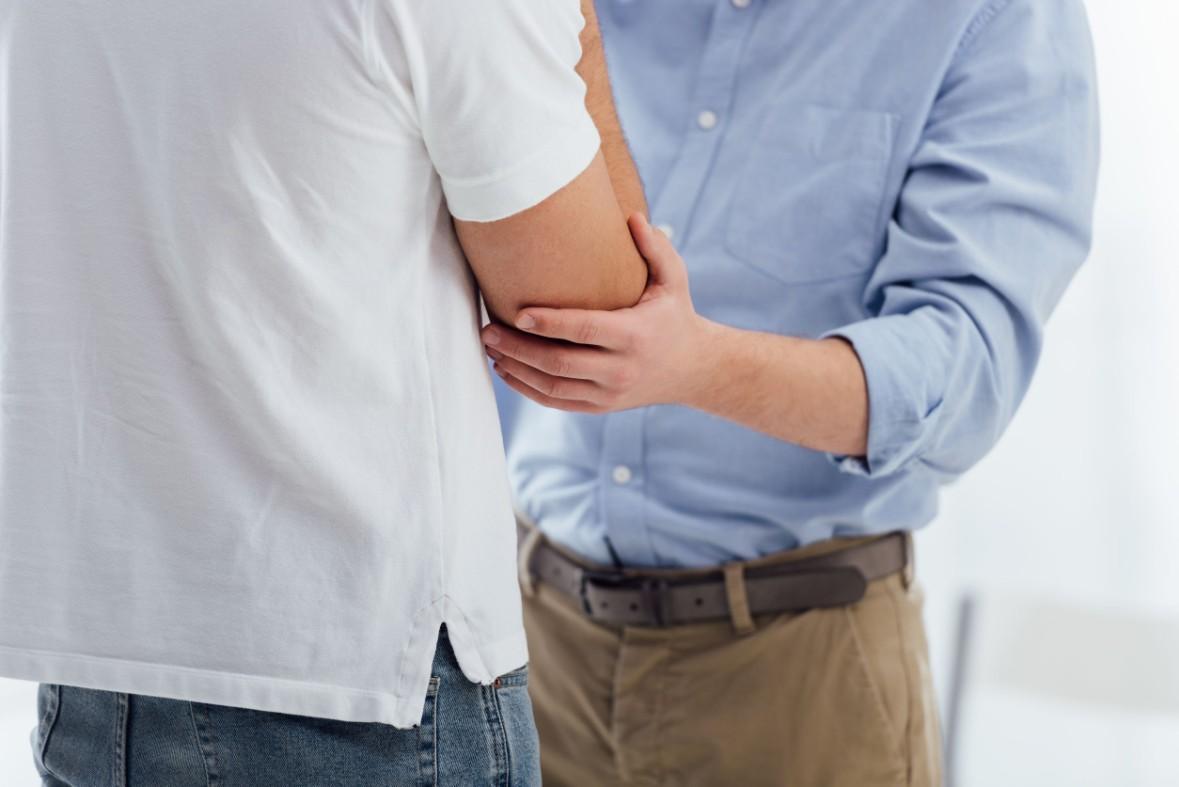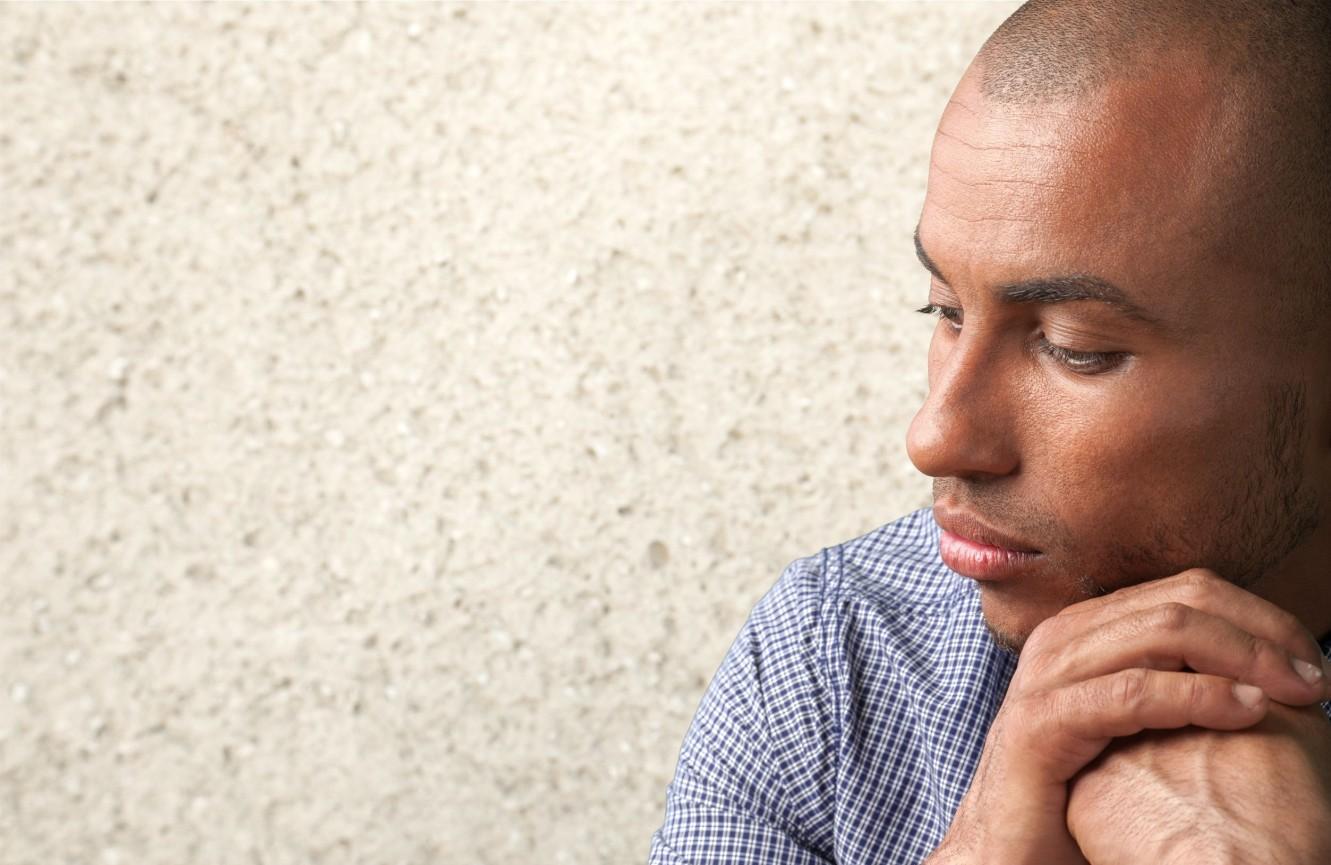
8 minute read
Charity Profile ManKind
26 Charity Profile
ManKind by Lynn Smith Support for men affected by unwanted sexual experiences
Advertisement
When thinking of victims of sexual violence or abuse, we can be forgiven for assuming, initially at least, that victims are female. After all we are all aware of the existence of nationwide organisations such as Rape Crisis. But, shockingly, Sussex based charity, ManKind states that “1 in 6 men have been affected by unwanted sexual experiences. Given the demographics of the UK, that‟s about 130,000 men in Sussex. That's potentially over five million across England & Wales.” ManKind supports men who have suffered any form of sexual violation including rape and childhood sexual abuse. Set up in 2000 by a group of practising counsellors who noticed that more and more of their male clients were disclosing incidents of childhood sexual abuse, but realised that there were no organisations to which these men could be referred. For almost nineteen years, the charity has provided support for men affected by

unwanted sexual experiences and now is one of just a handful of agencies in the UK that specialise in working with male survivors. CEO Martyn Sullivan joined the organisation in 2006, and he admits that, “Men have a problem reaching out asking for help with anything,” and that many men find it particularly difficult to come forward and talk about sexual violence they may have suffered, especially if they have met with a lack of compassion and understanding in the past. “There are a lot of myths surrounding male sexual abuse, but also some truth in those myths. What we try to do is to give back control, this is the ethos of the whole programme, but it can be difficult for some people to take.” Martyn tells me that ManKind‟s programme is not for everyone, not everybody wants or needs to engage with a formal service, and they are honest with individuals if this is the case. The current programme is linear, a series of progressive steps, that offers men a way of making sense of the events they have witnessed or experienced, with each step introducing different tools to help this understanding and reduce any negative feelings. Martyn tells me that the ManKind programme ensures that the individual has counselling and also has to do some work on their own part. The programme offers up to 24 sessions of one to one weekly counselling sessions, giving long enough to explore the consequences of the abuse. This allows the individual to see that the process is progressive, and to know that there is a „next stage‟ for them. This next stage is a ten week course that helps men face why they feel as they do. Martyn says as a consequence of their experiences men may feel “as if they are going mad and have no power over these feelings.” The course explains how trauma affects the brain and offers techniques to help them manage their feelings.
through the door
What to put in your Will By Lucy Thomas
Writing a Will involves more than choosing who to give your money to. The following are points to think about before having your Will prepared: Executors They are responsible for administering your estate. They will collect in and value the assets then arrange for transfer or sale and distribution of money to your beneficiaries. The task can be a complicated and time-consuming job. You should choose people who you believe are capable and whom you trust implicitly. It is possible to appoint a professional executor, e.g. a solicitor. Guardians If your children are under 18, you should appoint guardians for them in the event of your death otherwise the court may end up deciding who should raise them. Funeral arrangements You can include funeral arrangements in your Will. Specific legacies You can leave gifts of money or items in your Will, known as specific legacies. These can be given to named individuals or charities.
Legal 27

Residuary Estate This is the portion of your estate that remains after all expenses, debts and specific legacies have been paid. You can leave it to one person or split it between several, giving each one a named share, for example a third. Tax efficiency Your Will can assist with saving Inheritance Tax. This is a complex area and specialist advice should be sought to ensure that the maximum tax allowances can be claimed. A change in the law in 2017 significantly changed the tax rules and you should consider reviewing your Will if it was made before 2017. Lucy is Legal Services Director at Legalmatters 01243 216900 or email info@legalmatters.co.uk

01243 888 342 07508 475 442
28 Charity Profile

The last stage shows them how to use what they learned to move on in their lives. While the first of these steps is always individual, later steps offer the opportunity to share and learn from other men‟s experiences within facilitated peer-support groups. Martyn explains that men come to ManKind by individual referral, and that they “need to be in a good place to take that first step, which involves them submitting a form on the ManKind website.” Once submitted, ManKind will call the individual, which Martyn says, “Takes away the onus of making that first call from the individual.” Once the charity has made contact then an initial meeting is arranged, Martyn tells me that the, “ManKind‟s service is a formal one and men have to be willing and able to attend meetings at the charity‟s base in Brighton & Hove city centre.” Martyn says that ManKind doesn‟t “go much into what happened to the man, unless they are willing to do so, it‟s up to them.” Martyn tells me that there is no difference in progress between those who address the traumatic event and those who do not. “Often the process will help the victim realise that at the time of the abuse they were much younger and may not have had the skills to stop what was happening to them from happening, which helps them to lose any blame or guilt they may feel.” Martyn stresses that ManKind … “Cannot take away what happened but we can help [victims] deal with their feelings.” Are there, I wonder, similarities between male and female agencies, have the male agencies benefited from experiences learned in female organisations. Martyn responds by saying that previously men may have called female helplines such as Rape Crisis and would have met what he describes as “varying degrees of reaction.” But that male organisations have been able to learn from the experiences of those agencies set up for female victims, in terms of what‟s worked and what hasn‟t. Martyn goes on to say that, “Unlike a lot of female agencies, ManKind does not adopt a gender exclusive policy. Most of the men approaching the charity are victims of childhood sexual abuse, thirty percent of whom will have been abused by women.” And that the rough rule that male victims should only be seen by male counsellors, and vice versa, has changed enormously, “There are very few male counsellors in the field and the driver is quality not gender. Most people simply want to see a good counsellor whom they are able to trust.” As a result the clinical team at ManKind is mixed gender. Earlier this year ManKind launched a Support our Service campaign, the aim being to create a Community Owned Organisation, where the public is the major stakeholder. At the time ManKind‟s press release stated that if “only 3,000 people gave £3 per

through the door

29
30 Charity Profile
month, ManKind would be able to cover 50 percent of its operating costs.” In order to support this venture, the charity is also seeking new trustees. When I ask how this campaign has progressed, Martyn is realistic. The charity, he admits, hasn’t had the resources to promote the initiative and that “it’s very hard to get people to put hands in pockets, especially with the uncertainty of Brexit.” Plus the search for trustees is “endless.” ManKind, Martyn admits, “is not a glamorous charity,” and that someone wanting to be a trustee may wish to be involved with some



thing more “cheerful.” Even so, “The trustee board of a charity not only governs its activities but it also represents the cause through a mixture of people with a range of skills which contribute to our aims and objectives.” ManKind is particularly keen to hear from people with experience in organisational leadership and management, marketing, fundraising and clinical skills. Martyn says that one of the key challenges facing the charity is reaching those people who would want to support it. Given the figures, he says, “There is a good chance that we all know a man who has been affected by sexual violation, though, of course, he may not have told us.” www.mkcharity.org 01273 911 680 ManKind is not a crisis centre, for immediate help contact: The National Male Survivor Helpline - 0808 800 5005
through the door











